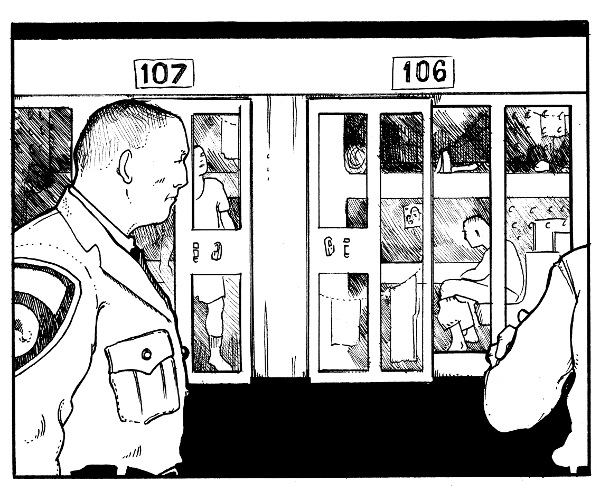
SAN FRANCISCO, CA — Federal District Court Judge Claudia Wilken ruled for an expansion of California SHU Prisoners’ Class Action Suit, Ashker v. Brown, on February 12, 2015. The case will now include a class of prisoners who were moved from Pelican Bay’s Security Housing Unit (SHU) to other California facilities. The prisoners’ putative class action challenge, citing 8th Amendment protections against cruel and unusual punishment, was initially filed on May 31, 2012. Soon after, the California Department of Corrections and Rehabilitation (C.D.C.R.) began moving some SHU inmates to what is called a step-down program at Tehachapi Prison—where the extreme isolation continues.
More than 500 Pelican Bay inmates have been held in solitary for at least 10 years, with over 78 having served 20-plus years. Seventy-five percent are actually doing time as gang associates, not as validated members. A gang associate can receive an open-ended sentence in solitary merely for possession of artwork, or waving to another prisoner of the same race. In comparison, the SHU sentence for the murder of a guard is just five years, and three years for murdering an inmate. The only way to leave the SHU is to name another prisoner as a gang member.
The SHU’s 8’ x 10’ cells have no windows, the inmates are not allowed telephone calls home, are served inadequate portions of substandard and rotten food, and family visits are video-taped. California holds at least 10,000 prisoners in solitary confinement, compared to over 70,000 prisoners held in isolation across the nation.
In 2011, Pelican Bay prisoners presented “5 Core Demands” to the C.D.C.R., in an attempt to revamp a system of incarceration recognized internationally as torture. The department’s lack of meaningful response resulted in three massive California prison hunger strikes. Inmates numbering 6,600, took part in the first hunger strike, running from July 1 until July 22: and 11,900 participated in the second, from September 26 until October 13. A third, from July 8, 2013 until September 5, 2013, involved over 30,000 hunger strikers statewide, and included a work slowdown of 23,000 inmates.
The suit is the work of a coalition of prison legal aid groups, spearheaded by the Center for Constitutional Rights. The ongoing case originated as a civil rights suit filed by Pelican Bay prisoners, Todd Ashker and Danny Troxell, in December of 2009.
The suit contests California’s extreme practice of placing inmates in 22 ½ to 24 hour-a-day solitary confinement, for as long as 10 to 29 years. With no consequential review process for the prisoners, Ashker v. Brown has also cited 14th Amendment due process violations, and was granted class action certification by Judge Wilken on June 2, 2014.
This important legal challenge could not have occurred without the incredible determination and hard work of the California’s SHU prisoners themselves. Ashker v. Brown is a key component in the ongoing nationwide prison rights struggle, attempting to institute more humane legal boundaries, in our country’s increasingly punitive system of mass incarceration.
